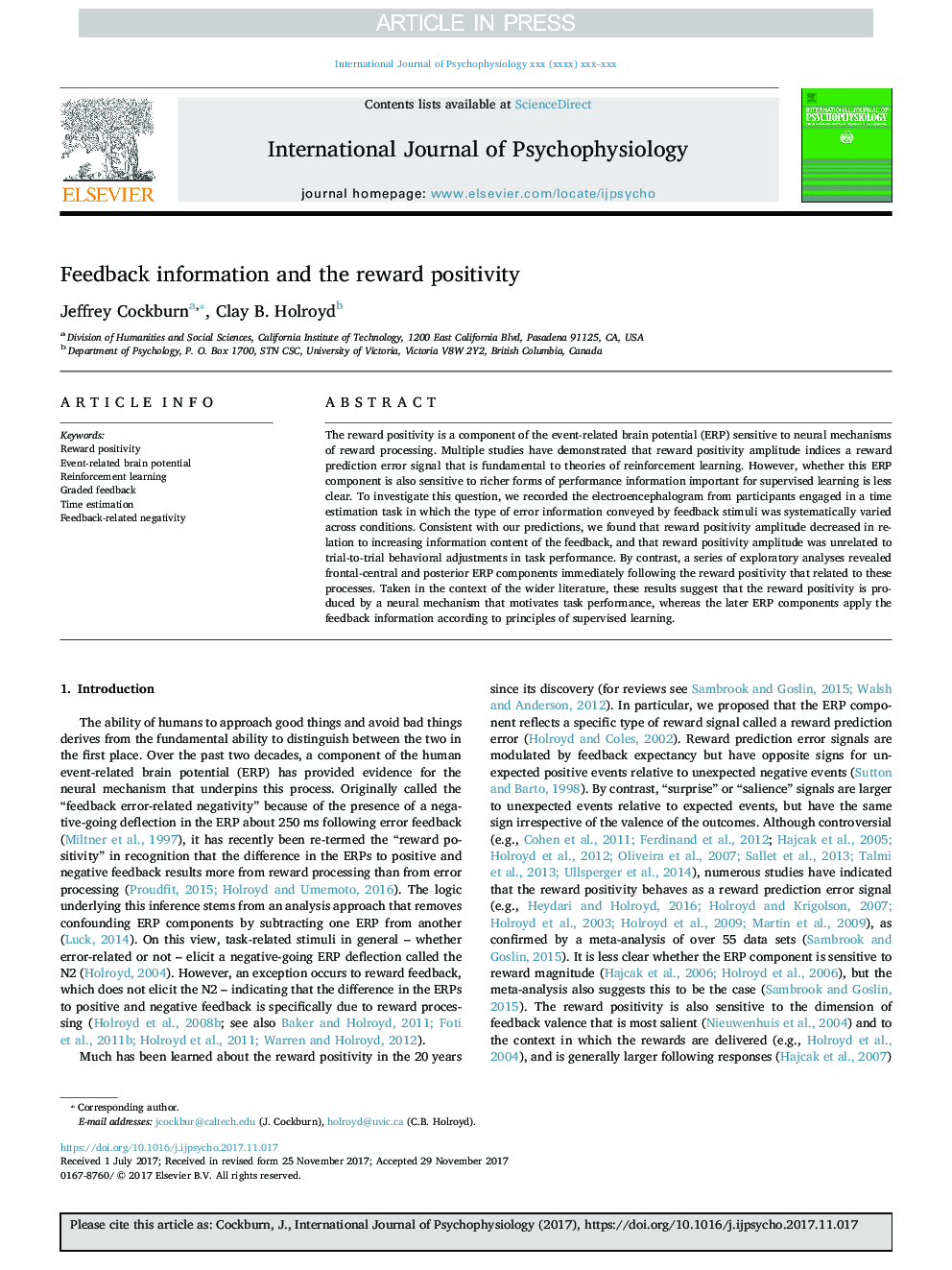| Article ID | Journal | Published Year | Pages | File Type |
|---|---|---|---|---|
| 10153485 | International Journal of Psychophysiology | 2018 | 9 Pages |
Abstract
The reward positivity is a component of the event-related brain potential (ERP) sensitive to neural mechanisms of reward processing. Multiple studies have demonstrated that reward positivity amplitude indices a reward prediction error signal that is fundamental to theories of reinforcement learning. However, whether this ERP component is also sensitive to richer forms of performance information important for supervised learning is less clear. To investigate this question, we recorded the electroencephalogram from participants engaged in a time estimation task in which the type of error information conveyed by feedback stimuli was systematically varied across conditions. Consistent with our predictions, we found that reward positivity amplitude decreased in relation to increasing information content of the feedback, and that reward positivity amplitude was unrelated to trial-to-trial behavioral adjustments in task performance. By contrast, a series of exploratory analyses revealed frontal-central and posterior ERP components immediately following the reward positivity that related to these processes. Taken in the context of the wider literature, these results suggest that the reward positivity is produced by a neural mechanism that motivates task performance, whereas the later ERP components apply the feedback information according to principles of supervised learning.
Keywords
Related Topics
Life Sciences
Neuroscience
Behavioral Neuroscience
Authors
Jeffrey Cockburn, Clay B. Holroyd,
